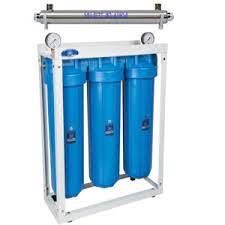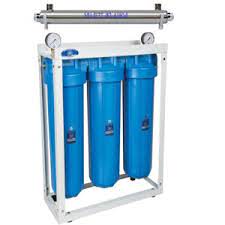
Best 3 Stages filter with UV in Jumeirah Beach Residence Dubai
Buy on whatsappDescription
Best 3 Stages filter with UV in Jumeirah Beach Residence Dubai
Water is an essential part of our lives. We use it for drinking, cooking, and cleaning. However, the water that comes out of our taps may not always be clean and safe to use. It may contain harmful chemicals and bacteria that can affect our health. That’s why it’s important to have a water filter in your home. In this article, we’ll talk about how to choose the right water filter for your home.
Why You Need a Water Filter?
The water that comes out of our taps may contain contaminants like chlorine, fluoride, and lead. These chemicals can have a negative impact on our health. Chlorine, for example, is used to disinfect water, but it can also cause respiratory problems and skin irritation. Fluoride is added to water to prevent tooth decay, but too much of it can lead to dental fluorosis. Lead is a toxic metal that can cause developmental delays and other health problems, especially in children.
A water filter can remove these contaminants from your drinking water, making it safe and healthy to use. It can also improve the taste and odor of your water.
Types of Water Filters
There are many types of water filters available on the market. Here are some of the most common types:
1. Pitcher Filters
Pitcher filters are the simplest and most affordable type of water filter. They consist of a pitcher with a built-in filter that you fill with tap water. The filter removes contaminants from the water as it passes through it. Pitcher filters are easy to use and don’t require any installation. However, they have a limited capacity and need to be refilled often.
2. Faucet-Mounted Filters
Faucet-mounted filters are attached directly to your faucet. They filter the water as it comes out of the faucet, providing you with clean and safe drinking water. Faucet-mounted filters are easy to install and don’t require any plumbing skills. However, they may slow down the water flow and can be bulky.
3. Countertop Filters
Countertop filters are placed on your countertop and connected to your faucet with a hose. They filter the water as it passes through them, providing you with clean and safe drinking water. Countertop filters have a larger capacity than pitcher filters and don’t require any installation skills. However, they can take up valuable counter space.
4. Under-Sink Filters
Under-sink filters are installed under your sink and connected to your faucet with a hose. They filter the water as it passes through them, providing you with clean and safe drinking water. Under-sink filters have a large capacity and don’t take up any counter space. However, they require some plumbing skills to install.
5. Reverse Osmosis Filters
Reverse osmosis filters are the most effective type of water filter. They remove almost all contaminants from the water, including lead, fluoride, and chlorine. Reverse osmosis filters are installed under your sink and require plumbing skills to install. They have a large capacity and provide you with the cleanest and safest drinking water. However, they can be expensive and require maintenance.
Factors to Consider When Choosing a Water Filter
When choosing a water filter, there are several factors that you need to consider:
1. Contaminants
The first factor to consider is the contaminants that you want to remove from your water. You can test your water to determine which contaminants are present. Different types of water filters remove different contaminants, so it’s important to choose a filter that can remove the contaminants that are present in your water.
2. Capacity
The second factor to consider is the capacity of the filter. If you apartment or have a small family, a pitcher filter may be sufficient. However, if you have a large family or consume a lot of water, a countertop or under-sink filter may be more suitable.
3. Installation
The third factor to consider is the ease of installation. If you don’t have any plumbing skills, a pitcher or faucet-mounted filter may be the easiest option. However, if you’re comfortable with plumbing, an under-sink or countertop filter may be a good choice.
4. Maintenance
The fourth factor to consider is the maintenance required for the filter. Some filters need to be replaced more frequently than others. Reverse osmosis filters, for example, require regular maintenance to ensure they continue to function properly.
5. Cost
The final factor to consider is the cost of the filter. Pitcher filters are the most affordable option, while reverse osmosis filters are the most expensive. It’s important to choose a filter that fits within your budget.
Conclusion
Choosing the right water filter for your home can seem overwhelming, but it doesn’t have to be. By considering the contaminants you want to remove, the capacity you need, the ease of installation, the maintenance required, and the cost, you can find a water filter that fits your needs and budget.
FAQs
- How often should I replace my water filter? A: It depends on the type of filter and the manufacturer’s recommendations. Some filters need to be replaced every month, while others can last up to six months or more.
- How do I know which contaminants are in my water? A: You can test your water with a water testing kit. Some water filters also come with a testing kit.
- Can a water filter remove all contaminants from my water? A: No, not all water filters can remove all contaminants. Reverse osmosis filters are the most effective at removing contaminants, but they may not remove all of them.
- Can I install a water filter myself? A: It depends on the type of filter and your plumbing skills. Some filters, like pitcher filters and faucet-mounted filters, are easy to install and don’t require any plumbing skills. However, under-sink and countertop filters may require some plumbing skills.
- Are expensive water filters worth the cost? A: It depends on your needs and budget. Expensive water filters, like reverse osmosis filters, can provide the cleanest and safest drinking water. However, they may not be necessary for everyone and may not fit within everyone’s budget.


